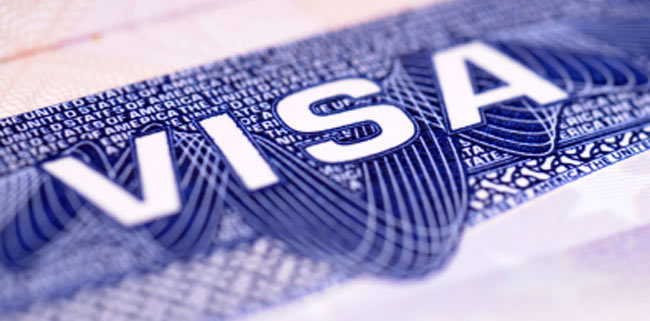How to get a student visa? If you’re planning to study abroad, then you may need a visa to enter the country in which you are going to be a student. We will look at the most frequently asked questions we hear about student visas. What is a visa? Let’s start at the beginning. A visa is a simple document that gives you access to enter a foreign country. A student visa is only given out to people who have a certain place of research at a registered institution for a set period. Various nations have different visa requirements, so your first port of call should be the embassy website of the country you wish to study in. To study abroad, when should I apply for a student visa? It’s important you apply for your visa before you travel to your study destination. You will generally have to wait until you have a verified Offer from a university before you can submit your visa application and you might have to apply in person at an embassy.
Allow enough time for any complications or supplemental exchange of Information to occur before you would like to travel. Your university should have the ability to provide you with more information. What type of visa do I need? The exact name and type of visa you need will vary from country to country but it is likely you will need a non-immigrant student/study visa.
This primarily means that you do not aim to take up permanent residence in that country and that your stay is for short-time study.
However, to find out the exact type of visa you need to study abroad and consequently, the appropriate application form, visit the embassy or consulate of your planned study destination in your home country (this has to be where you legally live). How do I apply for a visa needed to study abroad? Before you apply for your visa, you may need proof of your place in your Graduate program from the college or university that you are going to attend.
The first thing you should do is contact the university or college to Clarify which visa you want to apply for or to inquire them to send you The necessary documentation for your application.
Once your university or college has informed you of the appropriate visa you will need to apply for any supplementary documentation that they and You need to submit, you should be ready to apply.
In some countries, your visa application can be made in some ways, which can be through a post, courier, in person, or online. If you are not sure of this, then you need to visit the embassy of your host country and ask how you can apply to get a visa or search their website.
A study abroad visa isn’t valid if false information has been given or significant facts were omitted at the time of application.
How to get a student visa
If you’re planning to study abroad, then you may need a visa to enter the country in which you are going to be a student. We will look at the most frequently asked questions we hear about student visas.
What is a Visa?
Let’s start at the beginning. A visa is a simple document that gives you access to enter a foreign country. A student visa is only given out to people who have a certain place of research at a registered institution for a set period. Various nations have different visa requirements, so your first port of call should be the embassy website of the country you wish to study in.
To study abroad, when should I apply for a student visa?
It’s important you apply for your visa before you travel to your study destination. You will generally have to wait until you have a verified Offer from a university before you can submit your visa application and you might have to apply in person at an embassy.
Allow enough time for any complications or supplemental exchange of Information to occur before you would like to travel. Your university should have the ability to provide you with more information.
What type of visa do I need?
The exact name and type of visa you need will vary from country to country but it is likely you will need a non-immigrant student/study visa.
This primarily means that you do not aim to take up permanent residence in that country and that your stay is for short-time study.
However, to find out the exact type of visa you need to study abroad and consequently, the appropriate application form, visit the embassy or consulate of your planned study destination in your home country (this has to be where you legally live).
How do I apply for a visa needed to study abroad?
Before you apply for your visa, you may need proof of your place on your Graduate program from the college or university that you are going to attend.
The first thing you should do is contact the university or college to Clarify which visa you want to apply for or to inquire them to send you The necessary documentation for your application.
Once your university or college has informed you of the appropriate visa you will need to apply for any supplementary documentation that they and You need to submit, you should be ready to apply.
In some countries, your visa application can be made in some ways, which can be through a post, courier, in person, or online. If you are not sure of this, then you need to visit the embassy of your host country and ask how you can apply to get a visa or search their website.
A study abroad visa isn’t valid if false information has been given or significant facts were omitted at the time of application.
How long will it take to get my Visa?
Processing a student Visa can take as little as a couple of days to even several months relying on the nation and also your nationality. It is advised you leave enough time to get your visa sorted as attempting to rush an application is not recommended — and can even mean you miss out on your place.
Can I extend my visa while I am there?
This relays upon where you study. In most countries extending your visa is easy, while in others it’s difficult and in most cases, you may even have to leave the country before you can extend/renew your visa.
Strategies for passing your Student Visa Interview
The visa interview is an essential step that could be intimidating to some people. But do not worry! Below you’ll find some suggestions on how to pass your student visa interview.
Step 1: submit your application.
If you are applying to study abroad most especially to a college in the US, visit the American Embassy in your home country to submit the application for a category F-1 student visa. If you desire to study in a country like Canada, you can visit the Canadian Consulate in your home country to apply for a study permit. You could also apply for a study permit online.
Step 2: Practice your English Constantly.
Practicing your English can help you communicate with the officers at the embassy or consulate. This will also be useful in your future studies. There are several ways that you can practice your English; you can do so by watching American TV shows, listening to your favorite music songs, reading books written in English, and lots more.
Step 3: Gather all of the documentation you need to take to the interview.
This is an important step you must pay attention to in your preparation for the interview. During the visa interview, you need to present enough evidence for you to have a visa. Some of the documents you have to show include: your visa application, university acceptance letter, I-20 form in the US or research permit in Canada, in addition to evidence that you have sufficient money to support yourself. You might also include guarantors, like your parents that will help you support yourself while you study abroad.
Step 4: what to do during the interview.
You should dedicate your entire attention to the officer or the translator at the interview. Be sure that you listen carefully, think before you reply and keep your answers short and to the point. You can research online the most frequent questions in the visa interviews to prepare yourself and your responses.
Step 5: Prepare an explanation.
It’s essential to prepare an explanation for some of the most common study abroad visa interview questions. Frequent questions can include: why you want to go to the university you chose, what you are going to study, what your career goal is after you graduate, and others similar to these.
Step 6: talk about ties to your home country.
The officers in the embassy or consulate will frequently ask about the ties to your home country. This is done to make sure that you have enough things that hold you back and you will eventually return to your home country. Typically these include your job or business, family, a property you may own, or whatever else you can consider.
Step 7: be clear that you will return home after graduation.
This is important when you are planning to study abroad, so be sure to reiterate this point and illustrate on a few examples which you’re planning on coming back to your home country after graduating.
Good luck!


